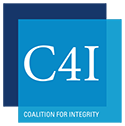Avoiding and Eliminating Potential Conflicts of Interest is a Fundamental Duty of Public Officials
Washington D.C., June 6, 2018
Maintaining the public’s trust in their government depends on how public officials behave – If they use their office to benefit themselves, their families, their friends, personal affiliates or associates or their business partners, they are showing complete disdain for the public. Public officials should make decisions and provide advice on the basis of disinterestedness, impartiality and integrity. Recent scandals have drawn attention to the importance of avoiding conflicts of interest as these can weaken trust in government.
The law in the United States is absolutely clear – it is a criminal violation to act on matters in which you or a member of your family has a financial interest (18 U.S.C. 208). Regulations issued by the Office of Government Ethics (OGE), governing executive branch employees, go further (5 C.F.R. 2635). Public officials must refrain from acting not only when there is an actual conflict of interest but also where there is an appearance of a conflict.
Public officials, whether federal, state or local, should adhere to the following general principles:
- Each employee has a responsibility to citizens to place loyalty to the Constitution (federal and state), applicable laws and ethical principles above private gain.
- Employees should act impartially and not give preferential treatment to any organization or individual no matter what their relationship is.
- Public officials should perform their duties in an unbiased manner and not allow their private interests to affect their official decision making.
- Decisions should be made based on law, properly established policy and an even-handed assessment of the merits of each case.
To put these principles into practice, public officials should:
- Public officials should divest themselves of interests that could comprise their official decision making
- Public officials should abstain from decision making on issues that could be compromised by their private interests.
- Public officials should not misuse government resources for private gain – for example, a public official should never use an official aid for personal work.
- All conflicts of interest should be adequately disclosed.
- Public officials should not misuse insider information obtained in their official capacity to enrich themselves or when seeking employment after leaving public office.
- Public officials should act in a manner that will bear the closest public scrutiny recognizing that mere compliance with a narrowly interpreted law will not ensure citizen’s trust in government decision making.
While conflicts of interest are an issue for every Administration, our current President and many of his associates provide not just one, but dozens of examples of actions which are or appear to be conflicts of interest. While the President is not technically subject to OGE’s Standards of Ethical Conduct, no president should flagrantly ignore those Standards. The scope of potential conflicts of the current President are unknowable since President Trump has never released his tax returns. We do know that President Trump “divested” himself from managing his business interests, but he retains 100% ownership interest. One of the most concerning examples of a conflict arises from the rental of office space in New York’s Trump Tower to the Industrial & Commercial Bank of China, whose controlling shareholders are the Chinese Ministry of Finance and Central Huijin Investment Company, a wholly-owned Chinese government enterprise. Other examples abound – The Trump Hotel in Washington, D.C., Ivanka Trump’s continuing business interests in China and other countries, Donald Trump, Jr.’s trip to India.
Scott Pruitt, the head of the Environmental Protection Agency, appears to go from one ethical lapse to another. He has acted on matters of interest to a lobbyist from whom he rented a below-market apartment. Pruitt has used government resources to entertain himself and his family, using first class travel at the government’s expense and visiting Morocco on a mission to promote natural gas exports, something that is not EPA’s responsibility. According to latest reports, he also enlisted an aide’s help to help his wife’s job search.
Public Citizen has identified 37 recent hires with lobbying conflicts stemming from activity within the last two years, and only four of them have received ethics waivers.
“Above all public officials should act in a manner that advances public confidence in the integrity of public institutions” said Shruti Shah, President & CEO of Coalition for Integrity.
Previous statements made by the Coalition on this topic can be found at:
- November 2016 Recommendations to the Administration to avoid conflicts of interest: https://www.coalitionforintegrity.org/wp-content/uploads/2016/11/Trump-conflicts-of-interest-press-release.pdf
- Our June 2017 Statement of Conflicts of Interests that plague the White House: https://www.coalitionforintegrity.org/wp-content/uploads/2017/06/Trump-conflicts-June-14-2017.pdf
- November 2017 Statement: https://www.coalitionforintegrity.org/wp-content/uploads/2017/11/Narco-a-lago-press-release-final.pdf
Our Previous Press Statements are here:
- Quartz: We can start taking Trump seriously about ditching his business interests when he does these five things, November 2016: https://qz.com/849091/trumps-conflicts-of-interests-will-still-be-in-doubt-until-he-does-these-five-things/
- Miami Herald: Trump says law is on his side amid calls for him to distance from his business empire, November 2016: http://www.mcclatchydc.com/news/politics-government/election/article116483578.html
- The Huffington Post: Donald Trump’s Conflicts of Interest Are a Swamp unto Themselves, November 2016: https://www.huffingtonpost.com/entry/donald-trump-conflicts-of-interest_us_582a24bde4b0c4b63b0e07af

